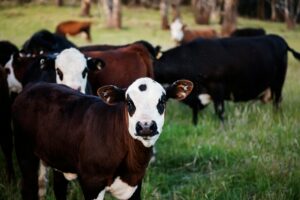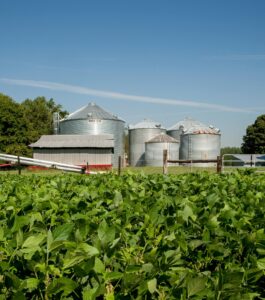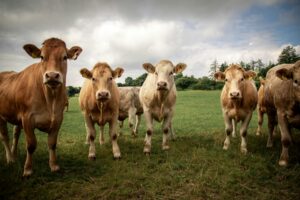Written by Agbiz head of Legal Intelligence Theo Boshoff
The State of the Nation address delivered by President Ramaphosa set out five fundamental goals for South Africa. Three of these goals, namely eliminating hunger, growing the economy faster than the population growth rate and creating 2 million job opportunities, are partially premised on economic growth in the agricultural and agribusiness subsectors. To enable the private sector to grow and create job opportunities, the President stressed the need to improve the ease and speed of doing business. As a business association, this is music to our ears. To get the ball rolling, a few quick-wins are listed below that should be prioritised to improve business conditions for the agribusiness sector.
In agriculture, water is everything
The President mentioned that no business should have to wait longer that 6 months for any permit or licence required to do business. The department responsible for water-use authorisations previously set a turnaround target of 300 days to process a water use licence but sadly it is very seldom that these targets are met. In fact, delays up to and exceeding 3 years are quite common. This simply has to change if we are to grow the sector at the pace required and the best way to do so is to partner with the private sector, develop IT systems and protocols that will catapult this process into the 21stcentury.
If this sounds too idealistic, it is worth pointing out that other government departments already wrote the blueprint and achieved great results. The Department of Transport moved to an electronic-based system to administer driver’s licences and register vehicles (the e-natis system) a decade ago. Anecdotally, I would argue that there are more cars and licenced drivers on the road than there are water-use licences issues each year, and the system generally works. Likewise, Home Affairs took it to a new level when they partnered with South African banks to streamline their Smart ID and passport online application systems.
Admittedly, there is more to a water use licence than an ID or driver’s licence since applications have to be carefully considered in light of water availability, environmental and transformation considerations. Be that as it may, expanded criteria and guideline documents that can be used by applicants and the regulatory alike will go a long way towards speeding up the process. This is one aspect which should be considered in earnest at the upcoming Water and Sanitation Operation Phakisa.
Give the NDP’s plan for land reform a shot in the arm
Several commentators have bemoaned the perceived lack of detail in the SONA relating to land reform. But what we have in the NDP is a comprehensive plan with substantial recommendations waiting to be implemented.
The NDP can be broken down into two core recommendations: provide the private sector with an opportunity to contribute towards land redistribution; and formalise tenure arrangements in communal areas. Both outcomes have relatively little to do with expropriation and should not be left out in the cold pending Parliament finalising the expropriation debate.
When you break it down, expropriation only deals with one aspect of land reform, namely land acquisition. After the land acquisition, the success or otherwise of the venture will depend on (i) how they can finance their farming enterprises, (ii) what support they get and from whom? (iii) the extent to which they can link up with established value chains.
There is sufficient goodwill in both government and the private sector to address these latter challenges but a vehicle is needed. Whilst the NDP does not call it by name, it strongly hints towards an agricultural development agency premised on the principle of a public-private partnership. The time is right to support such an initiative.
Some readers might be shocked to know that tenure relations in many communal areas are still governed by colonial legislation even predating formal Apartheid. Surely it is time for an upgrade? My colleagues and I previously argued that tenure reform should be built on existing customary laws to ensure legitimacy and acceptance, but should be formalised to make the rules of the game accessible to all so that public-private-community partnerships can take off. After all, many communal areas contain a favourable climate for high-value and labour-intensive horticultural crops and contain most of the last remaining underutilised water resources.
Make our ports work
In line with the increasing global demand for certain agricultural products, the president has set us on an export-led growth path. To achieve this outcome, we will need to focus on opening up new markets for trade.
However important this may be, it is likely a medium-term goal as trade agreements require time and skilful diplomacy to broker. What we need in the short term, are well-functioning ports that can keep up with the growing global demand for South African agricultural products. Export-orientated industries will know all too well that our rail and port infrastructure has been running on borrowed time, with insufficient revenue generated from international trade reinvested back into the port infrastructure.
In the SONA the President announced that Government would contribute R100 billion as seed capital for an infrastructure fund managed by the DBSA. Ideally, some of these funds could be used to upgrade our port infrastructure but at the very least, the revenue generated at ports should be ring-fenced and reinvested back into the ports opposed to cross-subsidising our rail infrastructure elsewhere.
Aside from physical infrastructure, human capital is equally critical. Agricultural exports require regular inspections and quality testing to maintain biosecurity and ensure that products meet the minimum quality standards required by global markets. At the Presidential Job Summit held in 2018, there was a principled agreement to look at creating more capacity through public-private-partnerships where bottlenecks are being experienced. This must be seen as a potential quick win and can only improve efficiency and accountability for all involved.
The original article appears at https://agbiz.co.za/uploads/AgbizNews19/190627_SONA%20article.pdf.
Read the general “Water“, “Irrigation“, “Emerging farmer support” and “Exporting” pages on Agribook.Digital.



